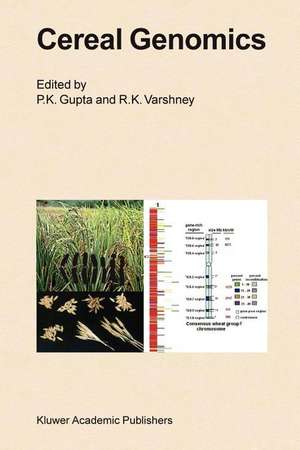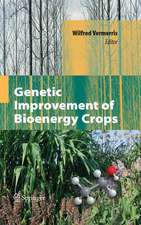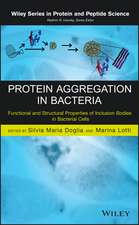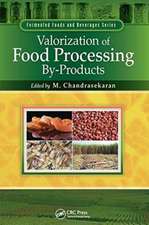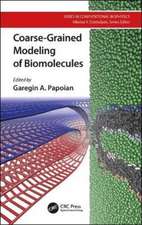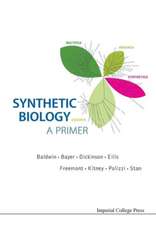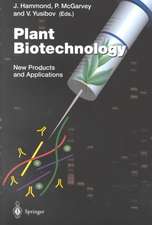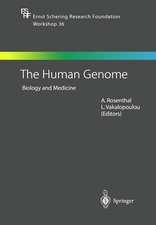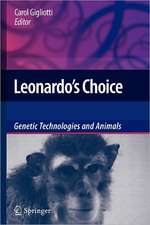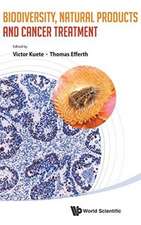Cereal Genomics
Editat de Pushpendra K. Gupta, R.K. Varshneyen Limba Engleză Paperback – 19 oct 2010
Preț: 1881.45 lei
Preț vechi: 2294.46 lei
-18% Nou
Puncte Express: 2822
Preț estimativ în valută:
360.01€ • 376.89$ • 297.89£
360.01€ • 376.89$ • 297.89£
Carte tipărită la comandă
Livrare economică 07-21 aprilie
Preluare comenzi: 021 569.72.76
Specificații
ISBN-13: 9789048166466
ISBN-10: 9048166462
Pagini: 648
Ilustrații: VIII, 639 p.
Greutate: 0.89 kg
Ediția:Softcover reprint of hardcover 1st ed. 2004
Editura: SPRINGER NETHERLANDS
Colecția Springer
Locul publicării:Dordrecht, Netherlands
ISBN-10: 9048166462
Pagini: 648
Ilustrații: VIII, 639 p.
Greutate: 0.89 kg
Ediția:Softcover reprint of hardcover 1st ed. 2004
Editura: SPRINGER NETHERLANDS
Colecția Springer
Locul publicării:Dordrecht, Netherlands
Public țintă
ResearchCuprins
Cereal Genomics: An Overview.- Molecular Marker Systems and Their Evaluation for Cereal Genetics.- Molecular Maps in Cereals: Methodology and Progress.- Organization of Retrotransposons and Microsatellites in Cereal Genomes.- Comparative Genomics in Cereals.- Population Genetic Structure of Wild Barley and Wheat in the Near East Fertile Crescent: Regional and Local Adaptive Patterns.- Gene and Genome Changes During Domestication of Cereals.- QTLs and Genes for Disease Resistance in Barley and Wheat.- QTLs and Genes for Tolerance to Abiotic Stress in Cereals.- Marker Assisted Selection in the Cereals: The Dream and the Reality.- Map-Based Gene Isolation in Cereal Genomes.- Gene Distribution in Cereal Genomes.- Whole Genome Sequencing: Methodology and Progress in Cereals.- Bioinformatics and Triticeae Genomics: Resources and Future Developments.- Functional Genomics of Seed Development in Cereals.- Functional Genomics for Tolerance to Abiotic Stress in Cereals.- The Arabidopsis Genome and Its Use in Cereal Genomics.- Rice Genome as a Model System for Cereals.- Cereal Genomics Research in the Post-genomic Era.- Genomics for Cereal Improvement.
Notă biografică
This book is the first of its kind, where twenty chapters written by experts of international repute, cover all aspects of cereal genomics research. In recent years genomics has become a thrust area of research in life sciences, and cereals, being the most important group of crops, their genomes have been subjected to intensive/extensive analyses. The knowledge and the products generated through cereal genomics research are already being used for plant breeding through both, the marker assisted selection (MAS) and transgenic cereals. The areas covered in this book include, development and use of all kinds of molecular markers (including SNPs), construction and use of molecular maps, study of population genetics and domestication of cereals using tools of genomics research, structural and functional genomics (including whole genome sequencing in Arabidopsis and rice), comparative genomics, QTLs (including epistatic and e-QTLs) and genes for resistance against biotic and abiotic stresses, marker assisted selection (MAS), map-based cloning of genes/QTLs and the use of genomics research for crop improvement. The book, therefore, should prove useful not only for students and teachers, but also for the young research workers, who are starting their research career in the field of cereal genomics.
Caracteristici
The areas covered in this book include, development and use of all kinds of molecular markers (including SNPs), construction and use of molecular maps, study of population genetics and domestication of cereals using tools of genomics research, structural and functional genomics (including whole genome sequencing in Arabidopsis and rice), comparative genomics, QTLs (including epistatic and e-QTLs) and genes for resistance against biotic and abiotic stresses, marker assisted selection (MAS), map-based cloning of genes/QTLs and the use of genomics research for crop improvement
